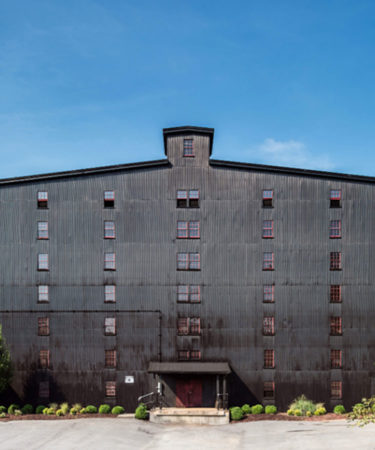An equipment failure at Barton 1792 Distillery in Bardstown, Ky. on Tuesday caused the loss of around 120,000 gallons of would-be bourbon. The accident came after one of the legs on a giant, 55,000-gallon beer well gave way, overturning the tank, and spilling its fermented mash contents, the Courier Journal reports.
Two employees at the Sazerac-owned distillery were injured during the incident. They were taken to the Flaget Memorial Hospital where they were treated for non-life-threatening injuries before later being released.
As the beer well collapsed, it damaged two other fermenting tanks, and around 10,000 gallons of mash leaked into a nearby tributary. Luckily, the tributary was dammed last year, preventing the majority of the spill from contaminating the Beech Fork River.
Facebook user Brij Patel was touring the distillery while the incident took place, capturing the aftereffects on a video which he later uploaded to the site.
Just heard a loud boom and one of the beer wells at 1792 just collapsed while i was touring /picking a barrel for Sprayberry Bottle Shop and was in that exact location where the pipe busted 20 minutes ago and lost almost 60,000 gallons. Holy shit.
Posted by Brij Patel on Tuesday, March 5, 2019
“Just heard a loud boom and one of the beer wells at 1792 just collapsed while [I] was touring /picking a barrel for Sprayberry Bottle Shop and was in that exact location where the pipe busted 20 minutes ago and lost almost 60,000 gallons. Holy s***,” Patel wrote in the video’s caption.
This isn’t the first time Barton has had to deal with such an incident. In June 2018, half of one of its storage warehouses collapsed, causing 9,000 barrels of aging bourbon to come crashing to the ground. Miraculously, no humans were injured during the incident, but a reported 800 fish were said to have died after a “stream of bourbon” flowed into the tributary and river, contaminating the water with alcohol.
The second half of the warehouse collapsed the following month, affecting a further 18,000 barrels. Due to barriers installed after the first incident, however, there was no further contamination of the river.
